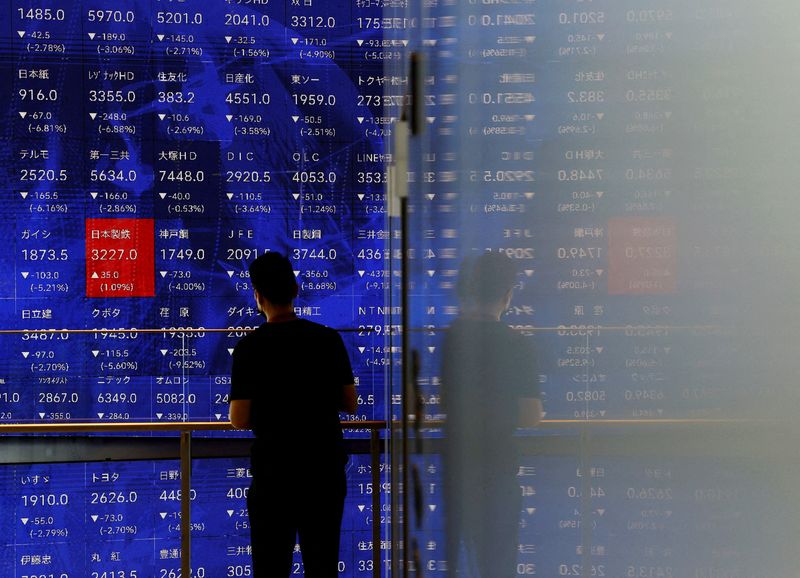(Reuters) – Foreign investors heavily bought into Japanese stocks in the week to Aug. 10, encouraged by policymakers’ signals to stabilize the market following recent turmoil which had sent shares into their biggest one-day plunge since 1987.
Cross-border investors bought a net 521.9 billion yen ($3.51 billion) of Japanese shares in the week, reversing three consecutive weeks of net selling, according to finance ministry data.
Last week, Japanese policymakers signalled action to prevent further declines in the stock market, while the Bank of Japan indicated it would keep rates steady amid market instability, following a historic 12.4% drop in the share average on Aug. 5 on fears of a recession in the U.S. and the unwinding of carry trades funding with cheap yen.
But those worries quickly faded and the Nikkei share average has surged over 20% since reaching a nine-month low of 31,156.12 on Aug. 5.
Foreigners also reversed an eight-week Japan bond selling trend last week, becoming net buyers. They acquired a net 1.44 trillion yen in long-term bonds, the largest amount since May 11, and a net 561.8 billion yen in short-term securities.
Japanese investors bought 1.54 trillion yen worth of long-term overseas bonds last week, marking the largest weekly net purchase in 12 weeks, and also acquired short-term instruments totalling a net 453.5 billion yen.

Japanese investors, however, shed foreign shares worth a net 328.1 billion yen after three weeks of net purchases in a row.
($1 = 148.9000 yen)


